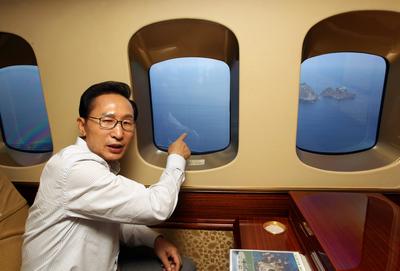Both countries’ new leaders — South Korean President Park Geun-hye and Japanese Prime Minister Shinzo Abe — have recognised the need for cooperative Japan–ROK relations and appear to be moving cautiously in that direction. But the territorial dispute over the Takeshima Islets, which Korea calls Dokdo, and disagreements over historical disputes and particularly the comfort women issue, still have the potential to upset the re-emerging cooperative mood if not managed carefully.
Resolving the Takeshima dispute over the short term may not be realistic, as neither side is willing to drop its claim. But it is important that it is managed in a calm way so as to not affect substantive areas of cooperation. To this end, South Korean nationalism — rooted in anti-Japanese attitudes from the colonial era — and Japanese nationalism — keen to break out of its postwar pacifist constraints — must not be unnecessarily inflamed. Politicians on both sides must understand the severity of the long-term damage to regional stability that exploiting territorial disputes for short-term gains does. Visits to the islets, such as, by Lee Myung-bak last August, or the proposed holding of a Takeshima Day event by the Japanese central government must be jettisoned as a mode of domestic political gain.
Regarding historical disputes and the comfort women issue, there are people inside the new Japanese cabinet and surrounding Prime Minister Abe with strong views against the 1993 statement by then Chief Cabinet Secretary Yohei Kono, apologising for and recognising the role of the Japanese military in forcibly recruiting some of the comfort women, and the 1995 Murayama statement apologising for Japan’s wartime actions. These statements have been in place as official Japanese government positions for nearly two decades, and the Abe administration should not underestimate the likelihood that any attempts to change them will have severely negative effects on Japan’s relations with South Korea, Asia more broadly, and the United States and its Asian-American communities.
The stakes in Japan–ROK cooperation are high. Given South Korea’s stunning economic development and democratisation, the bilateral dynamic should be transitioning toward a strategic partnership between two democracies, rather than being mired in historical and territorial disputes. In addition to the importance of bilateral ties for both countries’ economies, as the region’s two most economically advanced democracies, Japan and South Korea must act as regional leaders and cooperate to shape the evolution of the region toward a stable and prosperous rules-based order. This is especially important as the balance of power in the region continues to shift as emerging economies such as China, India and many ASEAN countries post rapid economic growth and increase their military spending. Intensive cooperation between the Japan and South Korea is also indispensable in order to address the North Korean question effectively.
Hitoshi Tanaka is Senior Fellow at the Japan Center for International Exchange and Chairman of the Institute for International Strategy at the Japan Research Institute, Ltd. He previously served as Japan’s deputy minister for foreign affairs.
This is an extract from an article in East Asia Insights, which is available here, and is reprinted with the kind permission of JCIE

